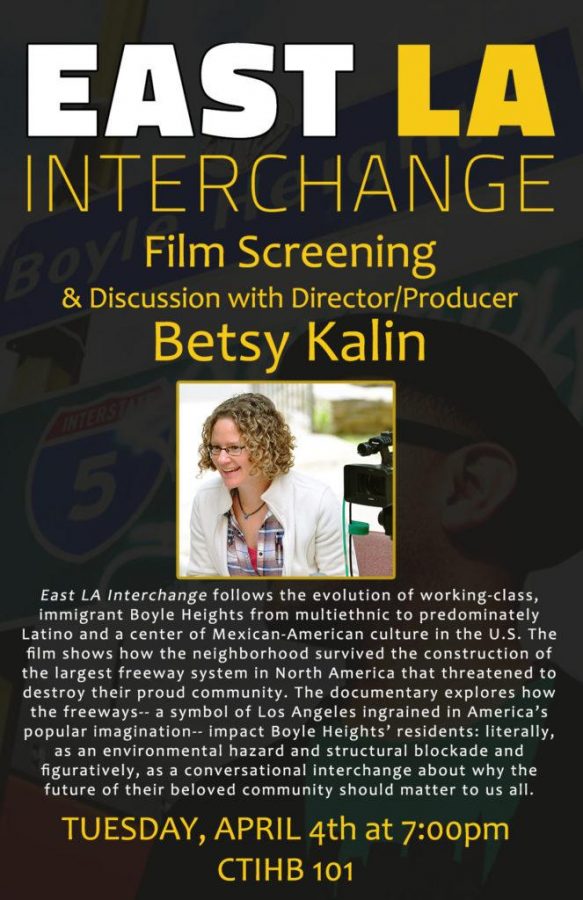The story of a racially diverse neighborhood’s strife with a major road was brought to the University of Utah’s Carolyn Tanner Irish Humanities Building Tuesday night in the film screening of “East L.A. Interchange,” a documentary by Betsy Kalin.
The East L.A. Interchange is the busiest freeway in the world. It also happens to be built through and directly on top of an incredibly diverse and well-known neighborhood called Boyle Heights. “East LA Interchange” highlights what used to be one of the most ethnically and racially diverse neighborhoods in the country and its subsequent struggles with gentrification, redlining and abrasive construction.
With a running time of a little over an hour, the piece is relatively fast-paced. Filmmaker Kalin utilizes many different features within the film to make this happen, including plenty of interviews, one of which was with Black Eyed Peas singer, will.i.am.
Footage from the 1930-1970s is also used to highlight various historic events within Boyle Heights, such as the effects of roundups targeting Japanese and Japanese-Americans living in that area to send them to internment camps, systematic racism taking place outside of Boyle Heights, federal redlining policies and lack of political representation.
Interestingly enough, in the Q&A session Kalin held following the screening, she said the original pitch of the film was centered on the friendship of three women who grew up together in Boyle Heights. These friends were made up of a Mexican-American, a Japanese-American and a Jewish-American. The problem with this setup, was that the friendship worked out so well there was no conflict to keep the story going. Thus, Kalin had to switch the angle to make for a more riveting storyline.
“East L.A. Interchange” has won numerous awards in the past two years since its premiere, including Best Documentary, Best Short Documentary and Best Feature Film. It provides a very intimate look, thanks to the 15 plus different testimonials and interviews with Boyle Heights residents, while also pointing out real problems caused by systemic racism and distaste for the poor.
For more information on the documentary, visit its official website at http://www.eastlainterchangefilm.com.
For information regarding future film screenings in the College of Humanities, you can visit the College’s event website at https://humanities.utah.edu/events/.


